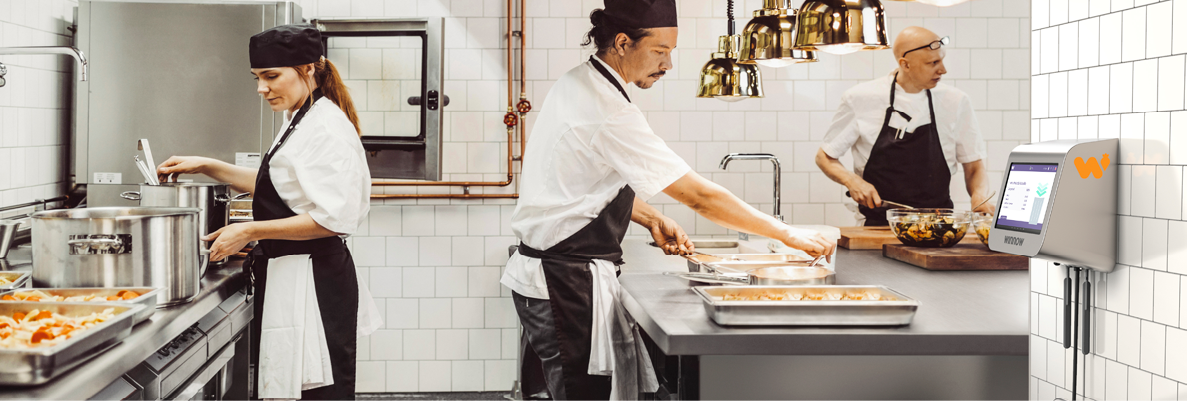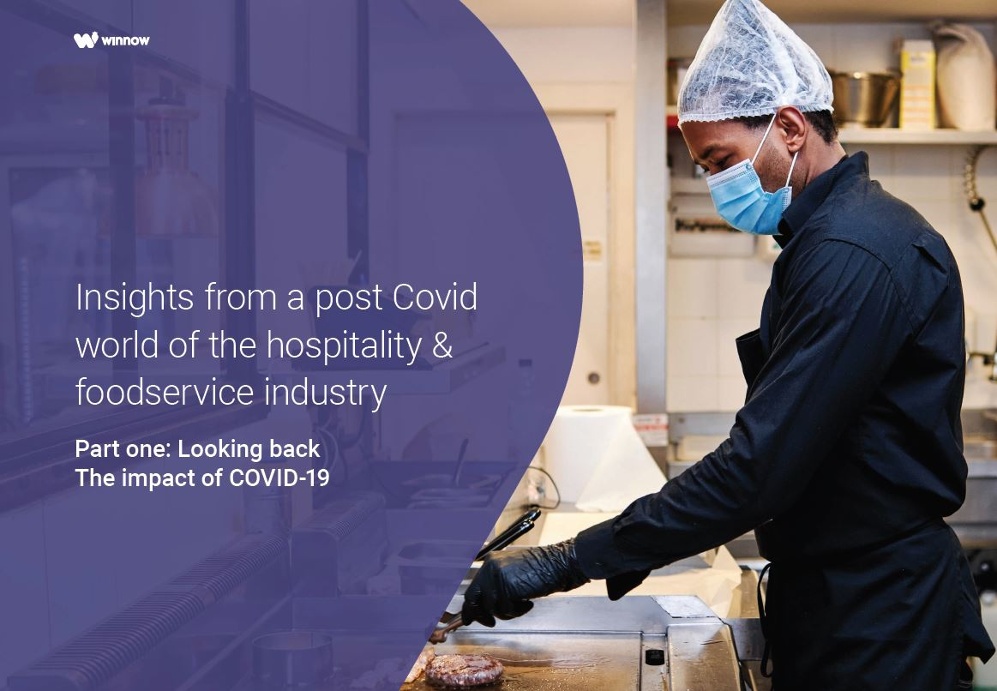To celebrate World Environment Day (5th of June), Elior Italy, leader in the contract catering, announced a pilot program for the deployment of Winnow’s Artificial Intelligence (A.I.) solution Winnow Vision to drive down food waste within its operation. The project is a step towards achieving Elior Group’s ambition to reduce food waste by 30% and its carbon emissions per meal by 12% by 2025.
Globally ⅓ of all food from farm to fork is wasted, contributing to approximately 8% of the world’s greenhouse gas emissions. Food waste is an age-old problem for the hospitality and foodservice sector. Kitchens are busy, and measuring food waste accurately is challenging. Historically teams simply didn’t know how much they were wasting or which items were being wasted.
Winnow’s technology helps solve this problem by making it easy to record food waste accurately, giving chefs analytics to pinpoint where waste can be reduced. It works in a similar way to a driverless car, with a camera positioned over bins capturing images of food waste. Over time the system learns to recognise food items, automating much of the recording process giving accurate data with little effort.
Winnow Vision is being installed in both the kitchen and the dining area of their restaurant Fourchette in Milan. Customers are encouraged to use the Winnow Vision system in the canteen area to measure the amount of food left on their plates. This helps diners become more aware of food waste while also providing info on customer’s habits, giving the kitchen team a sense of how much is being wasted.
Winnow CEO and co-founder Marc Zornes says, “Food waste is a global challenge that we must collectively solve. Elior has set out a clear and ambitious vision to leave a positive nutritional footprint by 2025. It is a privilege to work with such a sustainability-focused caterer and help them further transform their responsible business practice.”
"Innovation and sustainability are fundaments of our business model and we believe that the collaboration with Winnow represents an important testimony of our attention to technological evolution and the need to develop more responsible food systems," adds Rosario Ambrosino, CEO of Elior. "The project is in line with into our environmental sustainability strategy, that puts the fight to food waste at a focal point: we work with all representatives of the supply chain, including our employees and customers, to spread awareness on the need to avoid food waste, both in kitchens and in our 2200 restaurants."
The adoption of new technology is part of a wider program of work from Elior to drive forward the sustainability agenda. As an active player in the food transition, the Group is committed to four areas that cover their entire value chain as part of Elior Group Positive Foodprint Plan: healthy food, sustainable sourcing, the fight against food waste and realizing the potential of their employees.










Comment on my blog